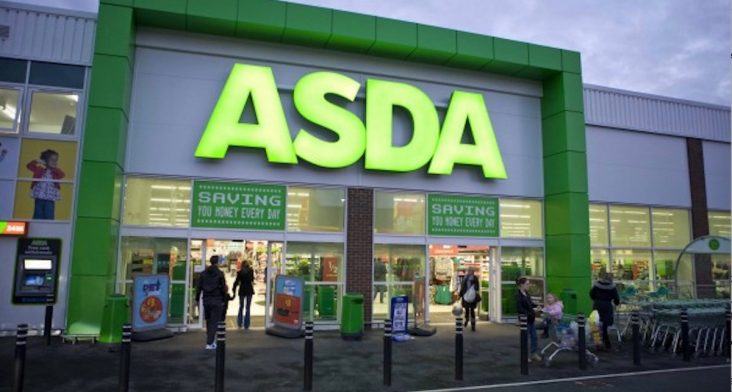Walmart reportedly closer to selling Asda
by September 28, 2020 3:39 pm 1,522 views

British news sources are reporting that Walmart may sell its U.K.-based retailer, Asda, to a consortium led by fuel station operator EG Group and private equity firm TDR Capital. Walmart has not confirmed the report and did not provide comment to Talk Business & Politics.
Asda operates 341 superstores, 207 supermarkets, 33 living stores, 32 supercenters, 18 fuel stations and a mobile platform and money transfer platform with 145,000 employees. Asda is the third-largest grocery chain in the United Kingdom by store count. The retailer said it serves more than 18 million customers each week.
Walmart has expressed its desire to divest of its Great Britain-based grocery retail business unit for the past two years. When the merger plan with Sainbury’s fell through in early 2019, Walmart kept looking for a new buyer and in July the retail giant said interest from third-party suitors began to rise. In March, Walmart approved three suitors for a second round of bidding for the business.
Any deal would have to pass regulatory muster and could still be months away. Walmart has been on the wrong side of regulatory rulings in the U.K. when the merger with Sainsbury’s was rejected by the Competitions and Markets Authority in early 2019.
Asda is valued at about $8.3 billion (U.S.), but the retail unit has been a laggard in Walmart’s international portfolio in recent years with financial performance well below the retail giant’s priority markets of China, Mexico, India and Canada.
Walmart acquired Asda in June 1999 for $8.4 billion dollars (U.S.), and has served as a source of talent for Walmart’s U.S. and international business units. Judith McKenna, CEO of Walmart International, came from the Asda business as did Tom Ward, an executive over Walmart’s customers’ innovations around online grocery. Ward was also a contributor to Walmart’s employee academy training operations. Retired executives David Cheesewright and Mark Ibbotson also came to Walmart from Asda.
Asda also served as a blueprint for Walmart’s successful online grocery pick-up business in the U.S. and has been a contributor to streamlining the retailer’s global sourcing practices over the past several years
Asda’s performance rebounded in the second quarter of this year amid the COVID-19 pandemic. Analysts said the stronger second-quarter results still lagged competitors Sainbury’s and Tesco. They said Walmart has not been able to grow market share with the Asda business after deep discounters Aldi and Lidl began to expand their U.K. footprints.
Walmart began to reduce its international portfolio a couple of years ago after investing in majority ownership of Flipkart, a leading online retailing and logistics and mobile pay platform in India. Walmart CEO Doug McMillon has said the international holdings will continually be evaluated and some would be sold, others partially divested and strategic investments will focus on the four major players in the international portfolio – China, India, Mexico and Canada.
The Asda sale could take different forms. Most analysts think Walmart would likely retain a minority stake in Asda while divesting the majority of ownership to the lead bid winners. That is how Walmart divested from Brazil by keeping a 20% minority stake and selling 80% to private equity firm Advent International in August 2018.
When Walmart invested $16 billion into Flipkart in May 2018, the company sought to only take an 81% stake and allow minority owners Tiger Management, Microsoft and Accel to own the remaining shares. McKenna said after the deal was completed in 2018, Walmart sought to share in the ownership of Flipkart and found the insights and collaboration with its minority partners to be valuable.
While the Asda business has struggled in recent years there could be some upside by 2023. IGD, a research firm, estimates the food and grocery market in the United Kingdom will grow by 14.6% over the next five years. They estimate the value by 2023 of the UK grocery market to be $285 billion. IGD reports the discount retailers are expected to make the biggest contribution to cash growth rising 37% to $41.092 billion. The growth will be driven by rapid expansion supported by upgrades to existing stores.
